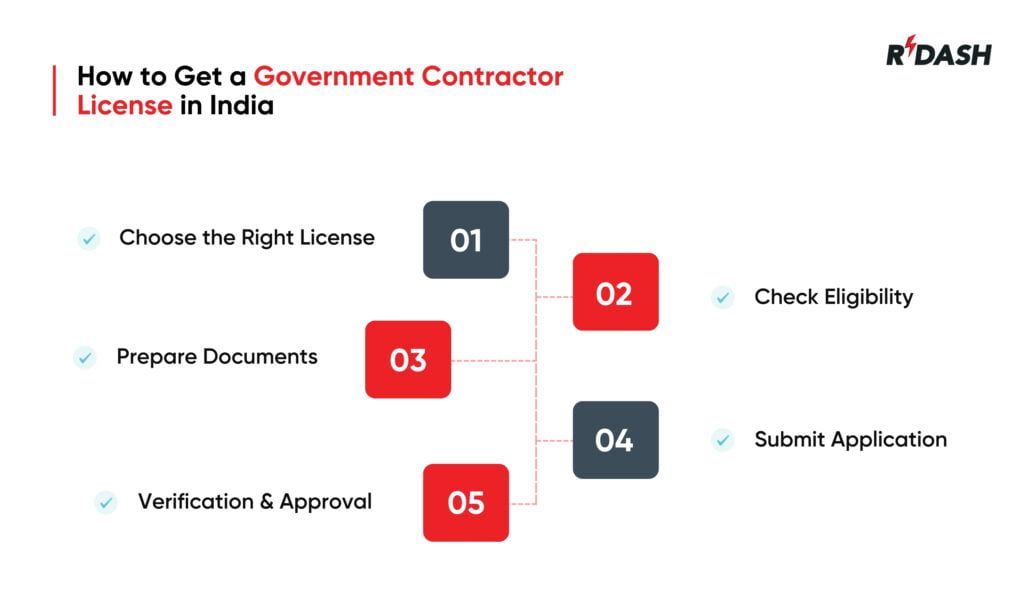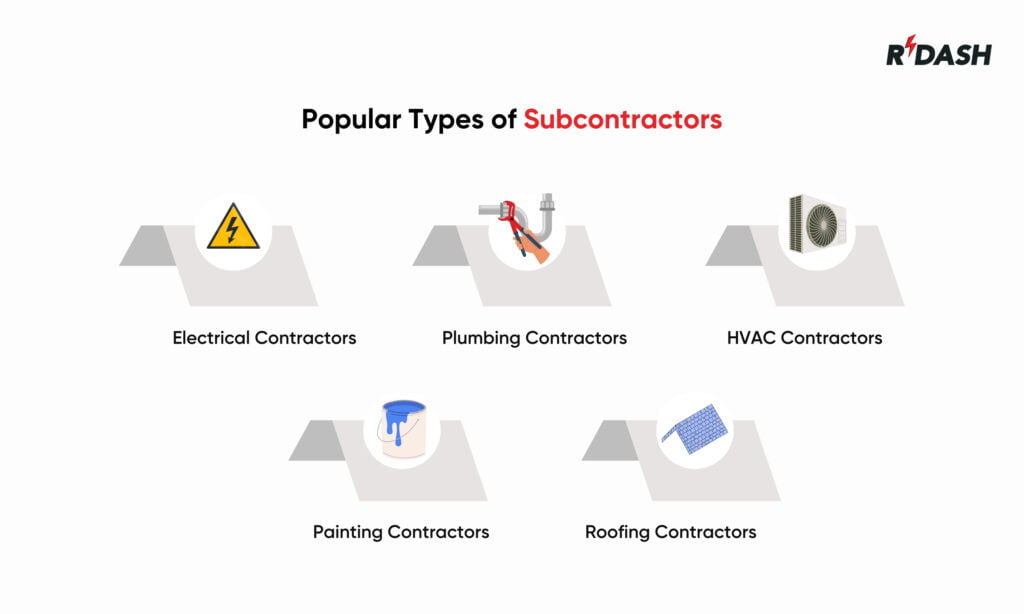How to become a contractor in India
Becoming a contractor in India opens up many opportunities, both in the private and government sectors. Here’s how to get started:
First, a strong educational background, particularly in civil engineering or construction management, is beneficial. Degrees from respected institutions not only enhance your field knowledge but also add credibility to your professional profile. After your education, practical experience is crucial. Consider working under experienced contractors to learn essential skills like project management, budgeting, and client communication.
Next, obtain the necessary licences and registrations, which may include registering with local construction authorities and acquiring a GST number. Building a strong network through industry meetups and seminars is also key, as these connections can lead to potential clients and projects.
Finally, start with smaller projects to build a solid portfolio. As your experience and confidence grow, you can take on larger projects, gradually scaling your business in the construction industry.
How to become a Government Contractor?
If you’re looking to become a government contractor, you’ll need to secure specific licenses from various authorities, including the PWD, CPWD, Labour Department, and Electrical Department, among others. The requirements for these licenses, including eligibility criteria and educational qualifications, vary by state. It’s a good idea to visit the official websites of these departments to get accurate and up-to-date information tailored to your location. This will help ensure you meet all the necessary criteria to start your journey as a government contractor.
How to become a Private Contractor?
Becoming a private contractor in India involves a blend of education, experience, and networking. Start with a solid foundation in a related field like civil engineering or construction management. Gain hands-on experience by working under established contractors to understand the intricacies of project management and client relations. Building a strong professional network through industry events can also significantly boost your career by connecting you with potential clients and projects.
How to Get a Government Contractor License in India
- Choose the Right License: Decide which type of projects you want to work on—PWD, CPWD, Labour, Electrical, etc.
- Check Eligibility: Visit the official websites of the respective departments to understand the eligibility criteria and required documents, which vary by state.
- Prepare Documents: Gather necessary documents like educational qualifications, proof of work experience, and financial stability certificates.
- Submit Application: Apply online through the department’s portal or submit your application in person at their office.
- Verification & Approval: Your credentials will be reviewed, and you may be called for an interview. Upon approval, you’ll receive your contractor license.

Types of Contractors in the Construction Industry
In the bustling construction sector, understanding the roles of various contractors is crucial to navigating this dynamic field effectively. Here’s a breakdown of the primary types of contractors you’ll encounter and a closer look at some of the most popular sub-contractors who play essential roles in bringing construction projects to life.
General Construction Contractors
General construction contractors are the maestros of the construction site, overseeing the entire project from start to finish. They are responsible for the big picture, ensuring that all aspects of the project are completed on time, within budget, and to the specified standards. These contractors coordinate the work of subcontractors, manage resources, and serve as the primary point of contact for clients. They handle everything from obtaining necessary permits to scheduling inspections. For more information on the types of services general contractors offer, their salary ranges, and the required licenses, you can check out this detailed guide.
Sub-Contractors
Sub-contractors specialize in particular areas of construction, bringing specific skills and expertise that general contractors might not possess. They work under the supervision of the general contractor, who assigns them to tasks that match their specialty. Sub-contractors are crucial for tasks that require detailed work or expert knowledge, and they ensure that these elements are executed with precision.
Popular Types of Subcontractors

- Electrical Contractors: These are the experts who make sure a building has power, lighting, and proper electrical safety. They are vital to any construction project, installing everything from electrical outlets to complex wiring systems that meet strict safety standards.
- Plumbing Contractors: Plumbing contractors handle the installation and maintenance of water systems in a building. This includes fitting bathrooms, laying complex pipework for heating systems, and ensuring that drainage systems are efficiently designed and installed.
- HVAC Contractors: Specializing in heating, ventilation, and air conditioning, HVAC contractors are crucial for creating comfortable indoor environments. They design and install systems that control the temperature and air quality inside buildings.
- Painting Contractors: Once the major structural work is complete, painting contractors come in to apply the finishing touches with their brushes and rollers. They are responsible for both the aesthetics and the protection of surfaces through various painting and finishing techniques.
- Roofing Contractors: These specialists focus on the topmost part of the building, ensuring roofs are well-constructed, waterproof, and durable. They handle everything from new installations to repairs and are critical for protecting a building from weather elements.
FAQs
1. Do eligibility rules for contractor licenses vary by state?
Yes, different states in India have their own rules and procedures for issuing contractor licenses. The eligibility criteria, required documents, and approval process may differ depending on the state’s regulations.
2. How can I apply for a contractor’s license?
You can apply either online through the official portal of your state’s Public Works Department (PWD) or offline by submitting the necessary forms and documents to the local licensing authority. It’s important to review your state’s specific requirements before applying.
3. What is the usual validity period of a contractor’s license in India?
Most contractor licenses are valid for 1 to 5 years, depending on the issuing authority. After expiry, you must renew the license by submitting an application and renewal fee.
4. Are there different license categories based on project size or type?
Yes, contractor licenses are often categorized based on the nature and scale of work – such as Class A, B, C, or specialized categories like electrical or plumbing. Higher classes usually require more experience and financial capability.
5. Is prior experience necessary to become a licensed contractor?
In many states, some level of prior experience in construction or related work is mandatory. You may need to show past project records, qualification certificates, or work experience as part of your application.






